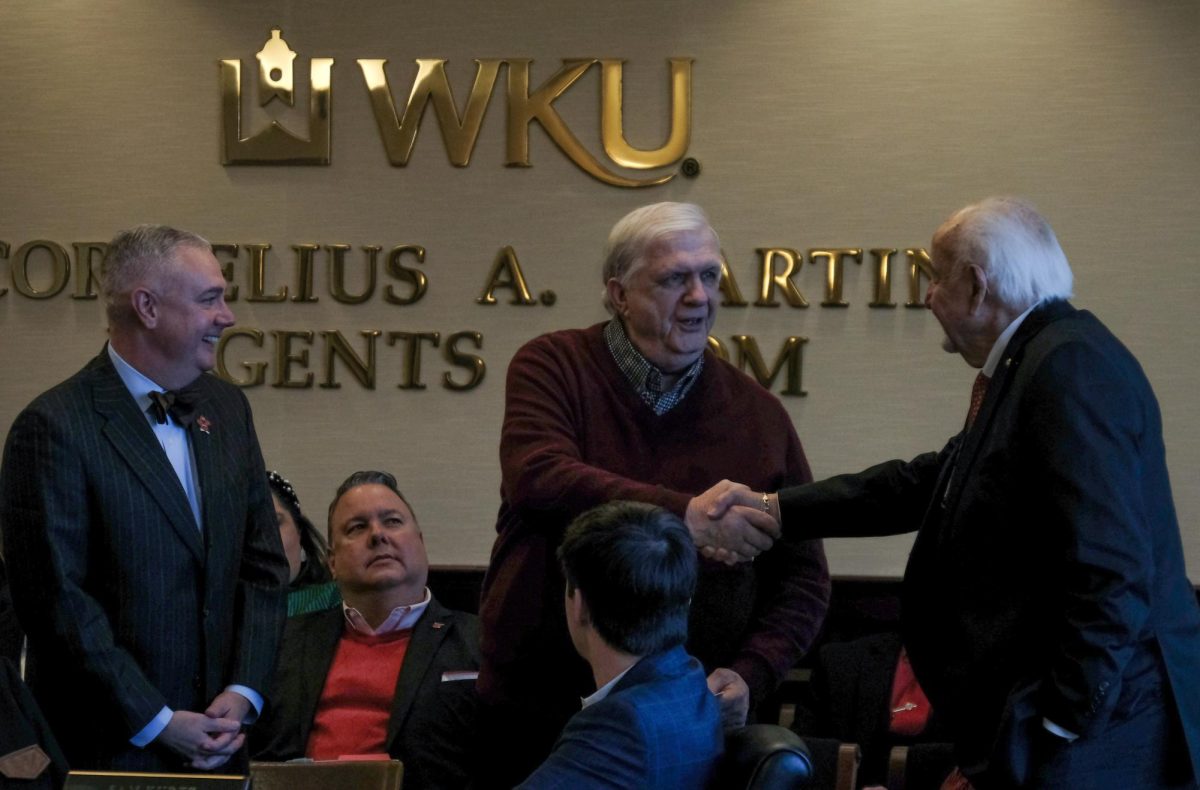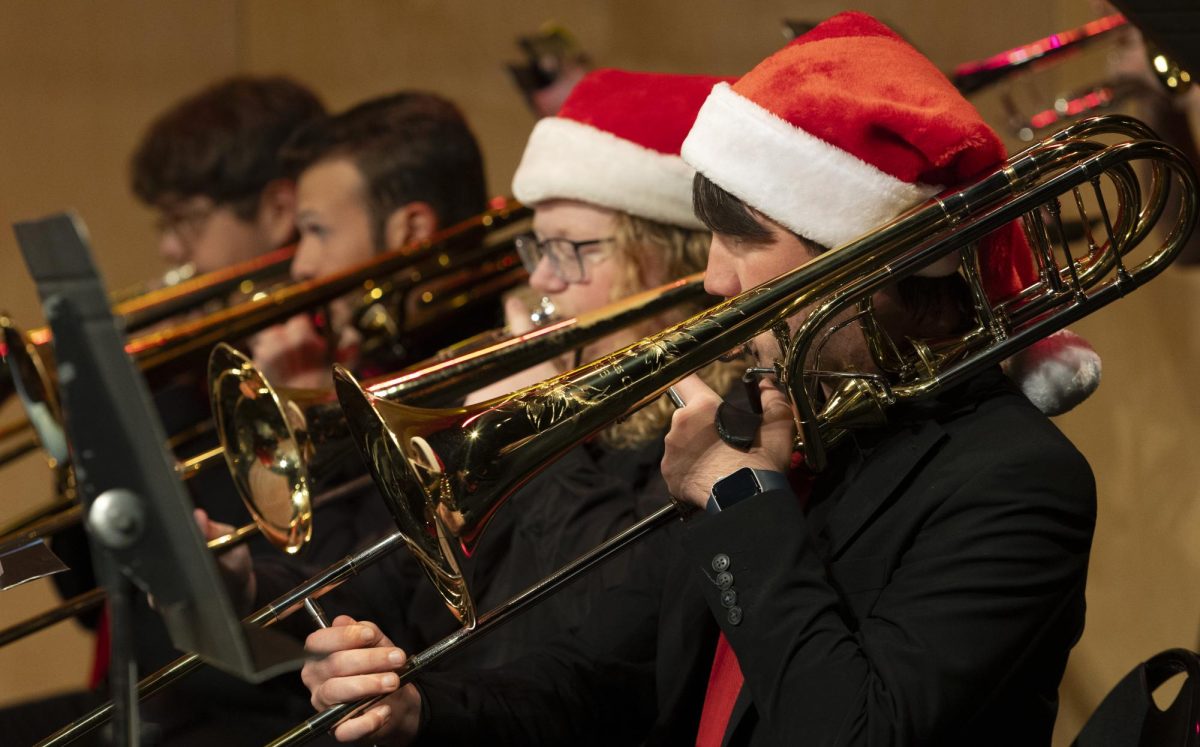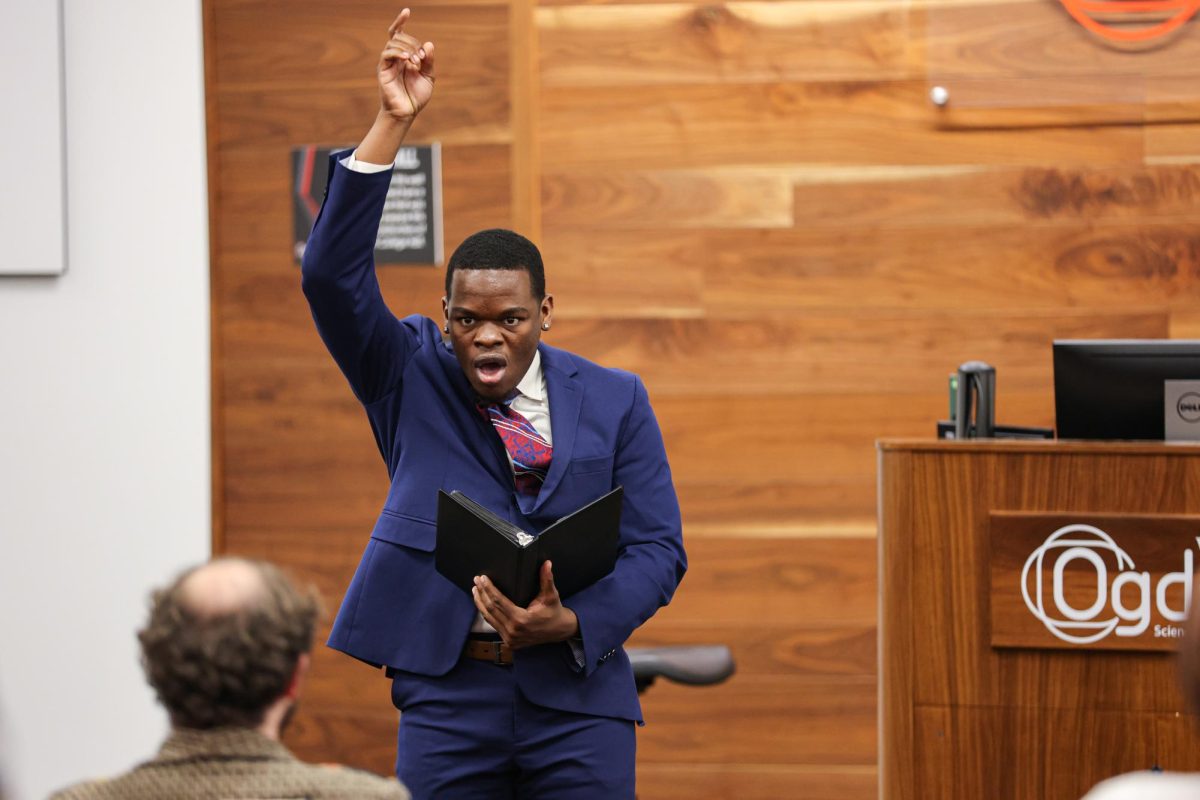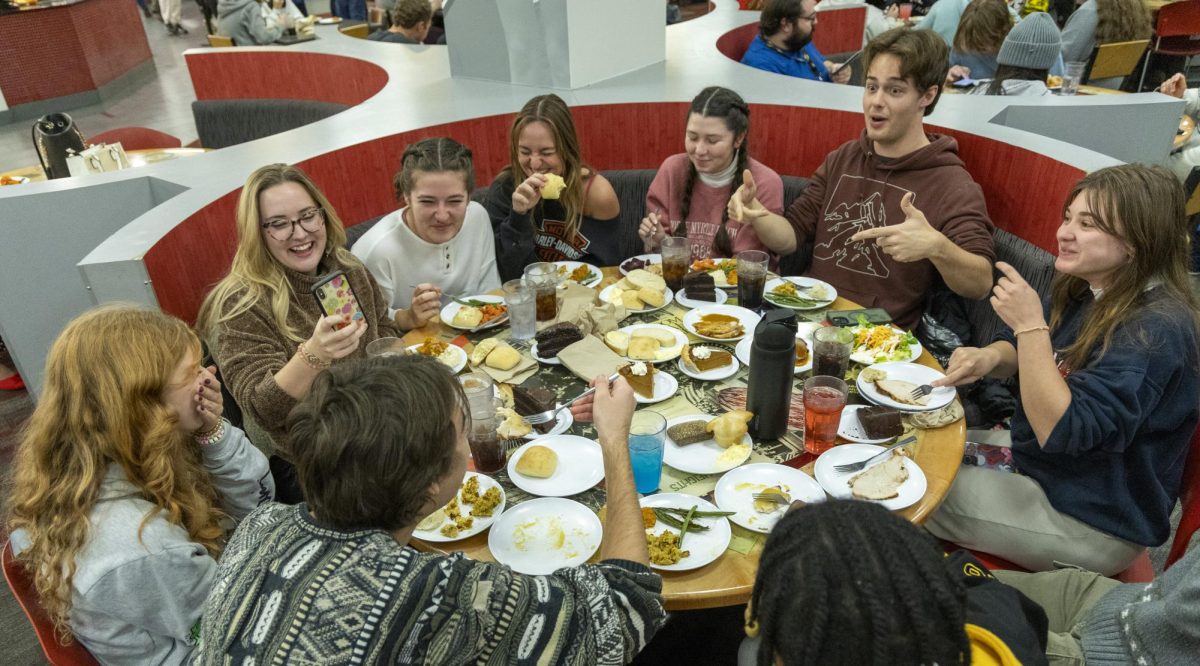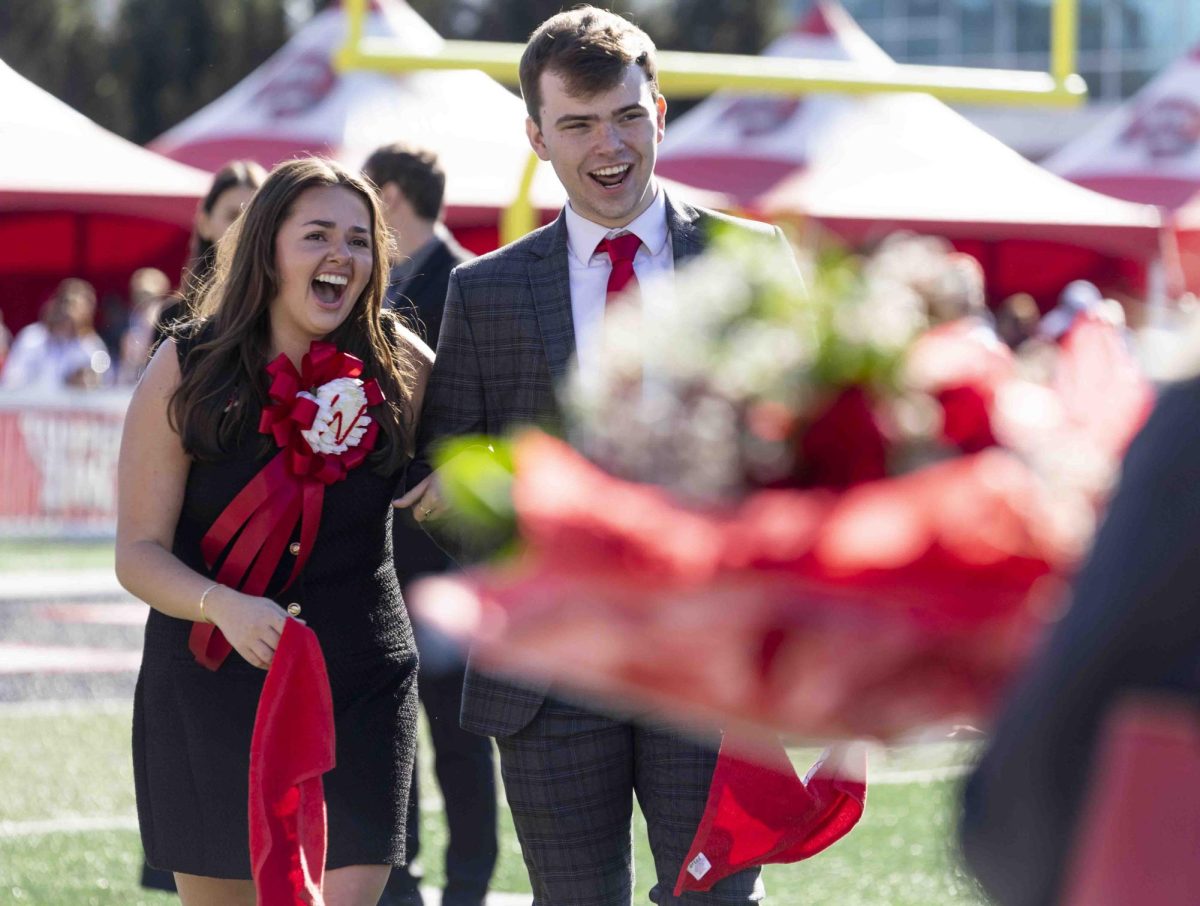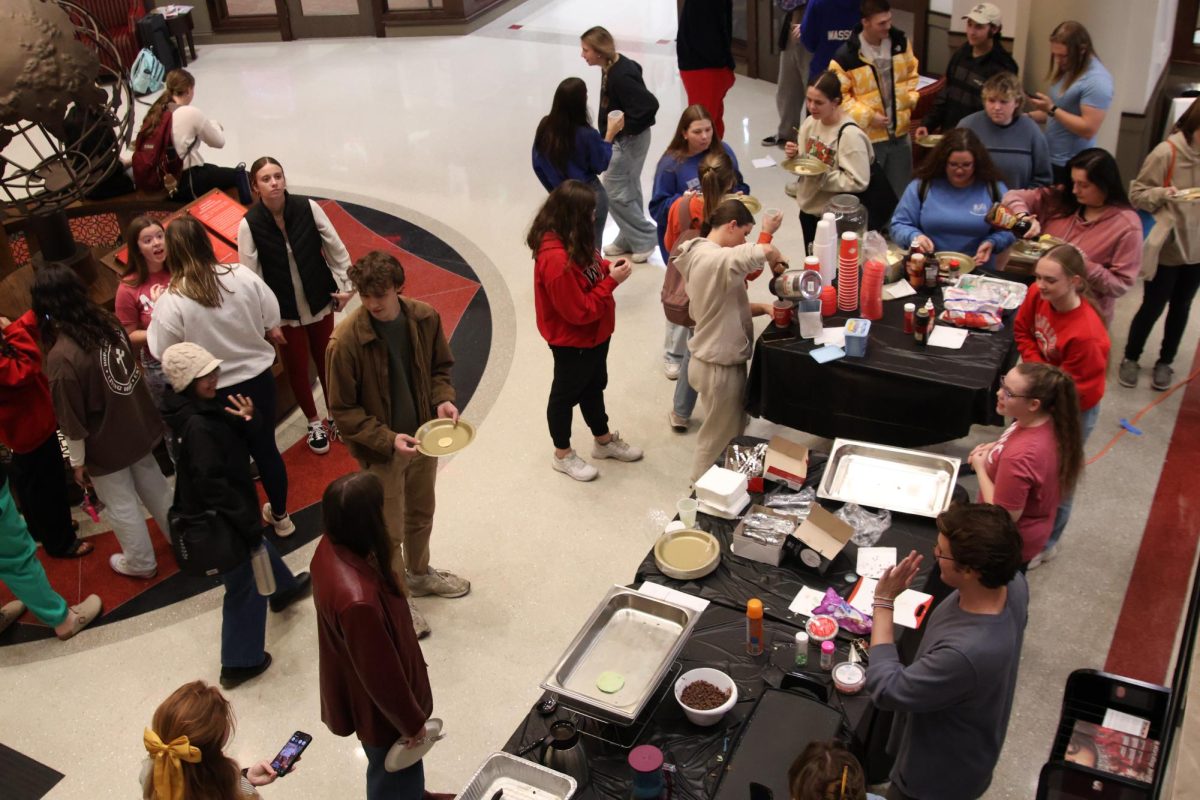Growing up going to an evangelical methodist church, Becca Andrews said she was anti-abortion for 23 years. Then, she wrote a book on reproductive autonomy.
Andrews presented her book “No Choice: The Fall of Roe V. Wade and The Fight to Protect the Right to Abortion” and read its prologue followed by a discussion on Friday, Feb. 23, at Jody Richards Hall.
“No Choice” covers the costs of restricting reproductive autonomy – from access to abortion care to health education and more, Andrews said.
“My hope is that readers from all kinds of backgrounds and belief systems will come to this text willing to engage with the stories of the people who have opened themselves up for this book,” she read out.
The book is divided into three parts. For the first one, Andrews said, she talked to people who had abortions before the Roe v. Wade ruling.
The U.S. Supreme Court established that “the decision whether to continue or end a pregnancy belongs to the individual, not the government,” in its 1973 ruling in Roe v. Wade, according to the Center for Reproductive Rights.
The second part of “No Choice” tells the stories of people from states like Tennessee and Kentucky who were “already living in post-Roe reality before the Dobbs decision happened,” Andrews said.
“A lot of us who grew up in conservative states have been living in a post-Roe reality for a long time – it just hasn’t been called that,” Andrews said. “We know that there are all these barriers to abortion care that were put up on purpose by lawmakers who are hostile to abortion rights.”
According to the Center for Reproductive Rights, the U.S. Supreme Court overturned Roe v. Wade with their decision in Dobbs v. Jackson Women’s Health Organization in June 2022, ruling that the right to abortion is no longer a federal constitutional right. Since then, state governments in 21 states across the country have either banned abortions completely or restricted access to the procedure, according to The New York Times.
Currently, in the commonwealth of Kentucky, abortion is “completely banned with very limited exceptions,” according to the Guttmacher Institute.
The third part of the book was the biggest challenge, Andrews said, since it was not planned originally but was prompted by a memo leak about the Supreme Court’s intention to overturn the Roe v. Wade ruling. Written on “no sleep while eating Froot Loops to keep [Andrews] awake,” this part covers the “post-Dobbs landscape” and “the ways people have been organizing to make up the gaps” in abortion healthcare, she said.
Andrews shared advice on how people can fight for their reproductive rights and encouraged attendees of her book presentation to educate themselves, follow activist organizations on social media to stay up to date on current events, contact representatives and talk to older people to hear and preserve their stories.
Ella Bryant, a freshman film major and gender and women’s studies minor, said she attended the event because it was advertised in one of her classes.
“I find it really unique that WKU is able to offer events like this where we can talk openly about abortion,” Bryant said. “I wanted to come and hear what [Andrews] had to say, and also see the other faces in the room, and know who my community on campus is.”
Another gender and women’s studies minor, Vivian Carlson, majors in political science and public relations currently has Andrews as one of her assistant professors in class. . She said she attended the book talk because she wanted to learn more about Andrew’s career outside of Western.
Besides teaching at WKU, Andrews is a freelance writer. She has written pieces for publications like Mother Jones, Rolling Stone and The Guardian.
Andrews graduated from Middle Tennessee State University and then moved to California to pursue her master’s degree at UC Berkeley Graduate School of Journalism. Still, she said she had known for the last six years that she would end up settling “in the South.”
“I love being Southern, I wouldn’t have it any other way,” Andrews said, adding that she still misses some parts of living in the Bay Area. “I believe in a better South, in a more progressive South and a more inclusive South.”
News Reporter Mariia Novoselia can be reached at [email protected]

![Journalism professor and author Becca Andrews listens to students' questions while discussing her book on abortion rights in America titled “No Choice” in Jody Richards Hall on Feb. 23, 2024. “4 of them [abortion recipients] told me I was the first person they had talked about their abortions with, not their parents, not their partner, not their grandparents, not anyone,” Andrews said when asked about gaining the trust of her sources for her stories.](https://wkuherald.com/wp-content/uploads/2024/02/smith_von_andrewstalk_02_23_3-1200x800.jpg)

